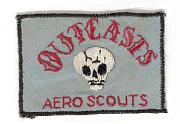I read the interview and the 'General Failure' and found both to be very enlightning. The only point of contention for me is the emphasis that he places on congressional oversight of generals. I come from a state that just re-elected a congressman that was found with 90k dollars of bribe money in his freezer ( Rep. William Jefferson, D-LA). I agree that there should be more / better oversight, but laying the issue at congress' feet doesn't seem to be the correct solution.













Bookmarks